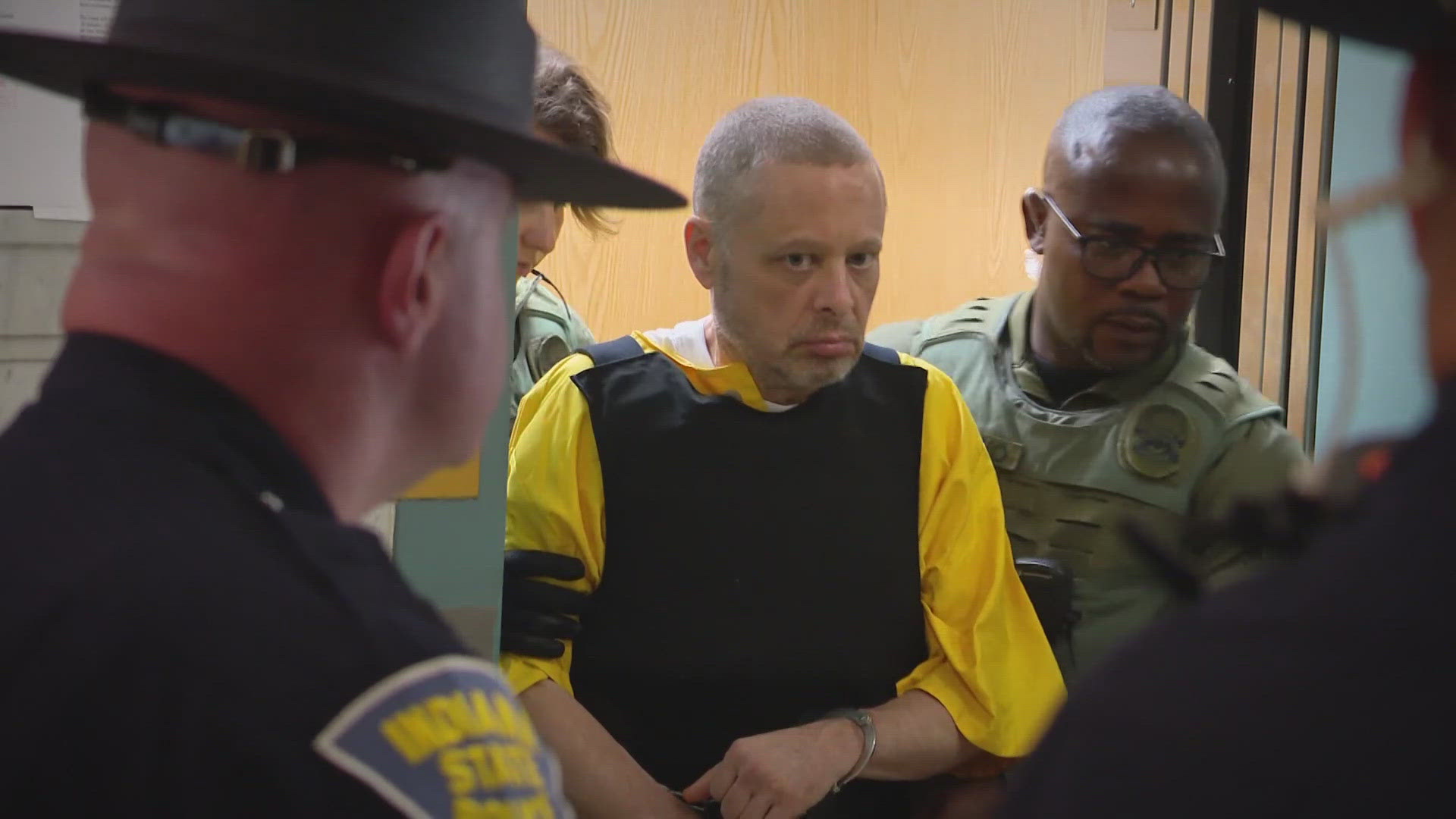DELPHI, Ind. — For the second time in as many weeks, special Judge Frances Gull has issued a ruling against defendant Richard Allen that will have a significant impact on the upcoming Delphi murders trial.
Wednesday morning, Gull granted a motion to block Allen’s defense team from introducing key evidence in his defense — prohibiting his attorneys from telling a jury about their theory that other men — not Allen — committed the murders of Abby Williams and Libby German in a ritualistic sacrifice near Delphi’s Monon High Bridge in 2017.
Allen’s public defenders claim police arrested the wrong man. They say multiple people with ties to a Nordic pagan religion known as Odinism were responsible for the murders, and they had planned to tell a jury about those alternate suspects at trial.
Carroll County Prosecutor Nick McLeland filed a motion, asking the judge to suppress all evidence and expert testimony related to the defense team’s Odinism theory, and the judge held a pre-trial conference on the issue Aug. 1.
In response to evidence and testimony presented at that hearing, the judge issued her order Wednesday, stating the defense failed to produce admissible evidence demonstrating a clear link between Odinism, the alternate perpetrators and the murders.
“The Court will not permit the evidence submitted by the defense in support of their arguments regarding third-party perpetrators in the trial of this cause as the probative value of such evidence is greatly outweighed by confusion of the issues and its potential to mislead the jury,” Gull wrote in her order.

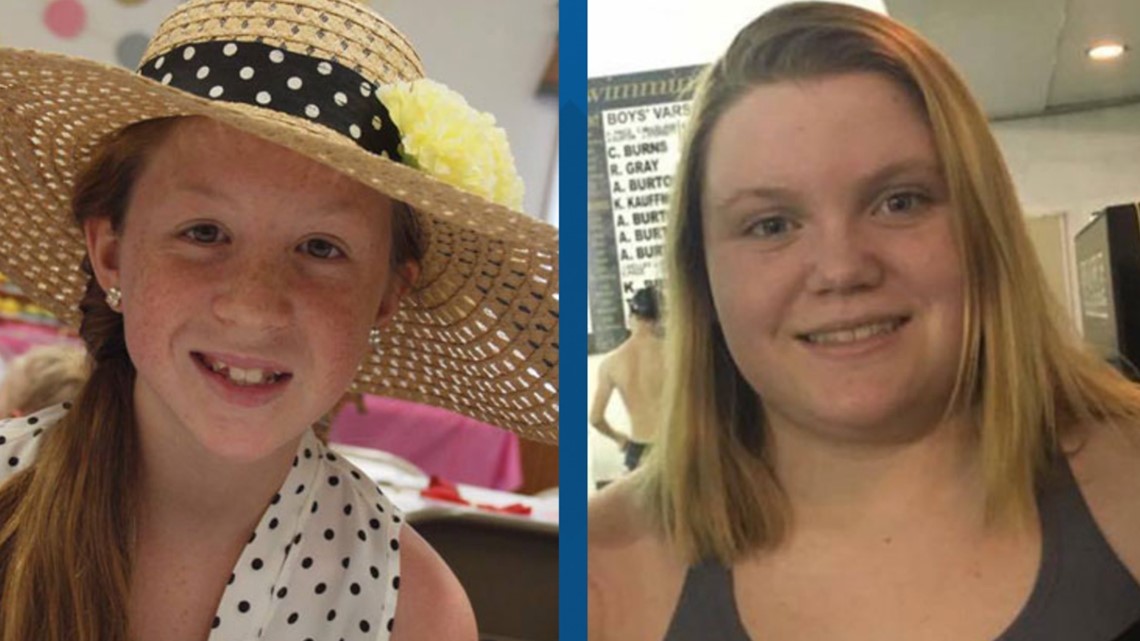
13News legal analyst Katie Jackson-Lindsay said the ruling is a big win for the prosecutor and deals a significant blow to Allen and his attorneys.
“It does put them at a huge disadvantage and it will require a lot of adjusting, a lot of redeveloping their defense and really sitting down and deciding, ‘OK, what is our defense now?’” she said.
Because we know from the public pleadings, their defense is: "They have the wrong guy."
Jackson-Lindsay and several other attorneys and judges contacted by 13News said they were surprised by Gull’s ruling, and several cited recent testimony that seemed to indicate the defense had established a sufficient basis to present its Odinism theory at trial.
At the August 1 hearing, attended by 13News, the defense team introduced evidence showing that even Indiana State Police looked into Odinism and possible suspects with ties to the Odinism as they investigated the Delphi murders.
An expert witness also testified for the defense that she is certain that Odinism was involved in the murders based on photos she reviewed the crime scene.
“In my opinion, this was a textbook ritual murder,” testified Dr. Dawn Perlmutter, an expert in ritualistic crime scene investigations. Asked by the defense if she has any doubts that Williams and German were murdered as part of ritualistic killing, she replied, “None at all.”
“They are sitting on this evidence they know is in existence and they never get to allow the jury to see that, so absolutely, they are at a huge disadvantage in terms of representing their client,” Jackson-Lindsay told 13News. “As a defense, you absolutely, if you have evidence or you have information that someone else committed the crime, you have to be able to present that. So this ruling absolutely undercuts the opportunity to do that and it’s just not something you see happen often.”
Defense attorney and former deputy prosecuting attorney Brad Banks agreed that the judge’s ruling is both unconventional and a setback for the defense.
“It’s devastating for the defense side. I mean, they’ve been planning this entire time for this,” he said. “They’ve been setting up their depositions, their entire strategy and, you know, as an attorney, whether you’re on the defense or the prosecution, you create a theory of your case, and the defense’s theory of this case has always been that somebody else did this … and they’ve developed a theory as to what happened that’s an alternative to what the state says happened. Today, the judge just basically said, ‘You don’t get to tell the jury about that.’”
Banks pointed out that it is common for judges to limit what a witness can speak about in order to prevent them from telling a jury about information that might be prejudicial or not based in supporting facts. But he said disallowing an entire defense strategy is not common. “In my experience, this is a very rare or unusual circumstance to say, ‘All right, defense, you can’t present your case.’”

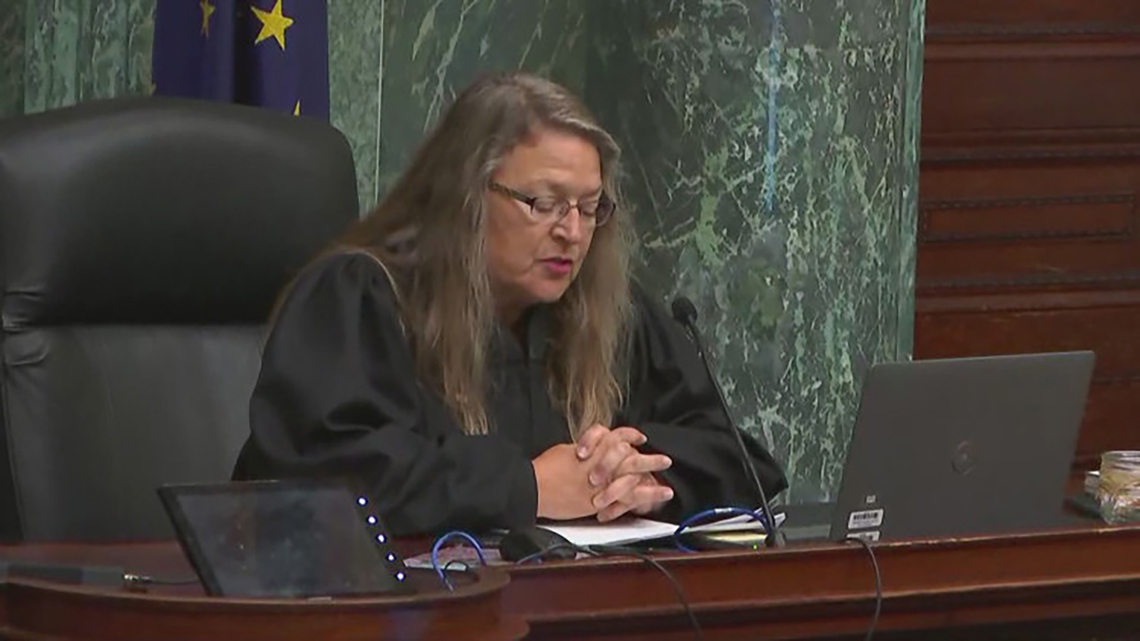
In her ruling, Gull said she will allow Allen’s defense to try again at trial to show a direct link between the Odinism evidence, the alternate suspects, and the murders. That “offer of proof” would happen after members of the jury are asked to leave the courtroom.
At that time, Allen’s defense team could again attempt to convince the judge that they can show a strong link between their alternate perpetrator theory and the murders. If they are successful, the jury would then be allowed to hear the evidence. Gull has already indicated in multiple rulings that she is skeptical of evidence presented by the defense, suggesting an “offer of proof” by the defense attorneys would likely result in yet another adverse ruling by the judge.
But simply presenting their Odinism and alternate perpetrator evidence during the trial — even if that happens while the jury is outside the courtroom and not able to hear it — would allow the defense team to preserve the legal arguments on the trial record, where they could later be reviewed by the Indiana Court of Appeals if Allen were to be convicted of the murders and choose to appeal.
Banks said the defense team also has the option to appeal Wednesday’s decision before the trial takes place.
“They could ask for what’s called an interlocutory appeal and ask the Court of Appeals to hear those issues before they go to trial, and that’s an option they have to pursue at this point,” he said.
Interlocutory appeals often take several months for appellate judges to review all of the evidence and testimony and to issue their opinion, so pursuing that route would likely delay the start of the trial, which is currently scheduled for mid-October.
Jury will hear alleged confessions
The decision to limit what evidence Allen’s defense team can present to the jury is the second major ruling against the defense in the past ten days.
Last week, Gull decided the jury will be allowed to hear the defendant’s alleged confessions about the murders of Williams and German. She denied a motion by Allen's attorneys to suppress more than 60 confessions that Allen allegedly made while he was incarcerated in state prisons.
Prosecutors say Allen confessed to the killings of Williams and German to multiple people, including his family members, prison guards, other inmates, a prison warden and a prison psychologist. According to court testimony, Allen reportedly made those confessions while he was being held at the Westville Correctional Facility.
His lawyers have argued that Allen did not make the confessions voluntarily. They said he was coerced by guards and was suffering from mental illness at the time of the confessions. The legal team urged the judge to suppress the incriminating statements to preserve Allen’s constitutional rights.
But the judge did not believe those arguments.
In her ruling, Gull wrote, "…statements given to the defendant's family members were voluntary, not coerced by any State action, and were not made under threats of violence, or improper influence."
Referring to some of Allen’s other alleged confessions, Gull also said, "The Court finds statements given by the defendant to Dr. Wala, the Warden, inmates, guards, medical personnel, mental health professionals, and law enforcement personnel were not coerced, were voluntary, were not the result of interrogation by the State or its actors, nor the product of his confinement and, therefore, denied the defendant's Motion to Suppress Statements."

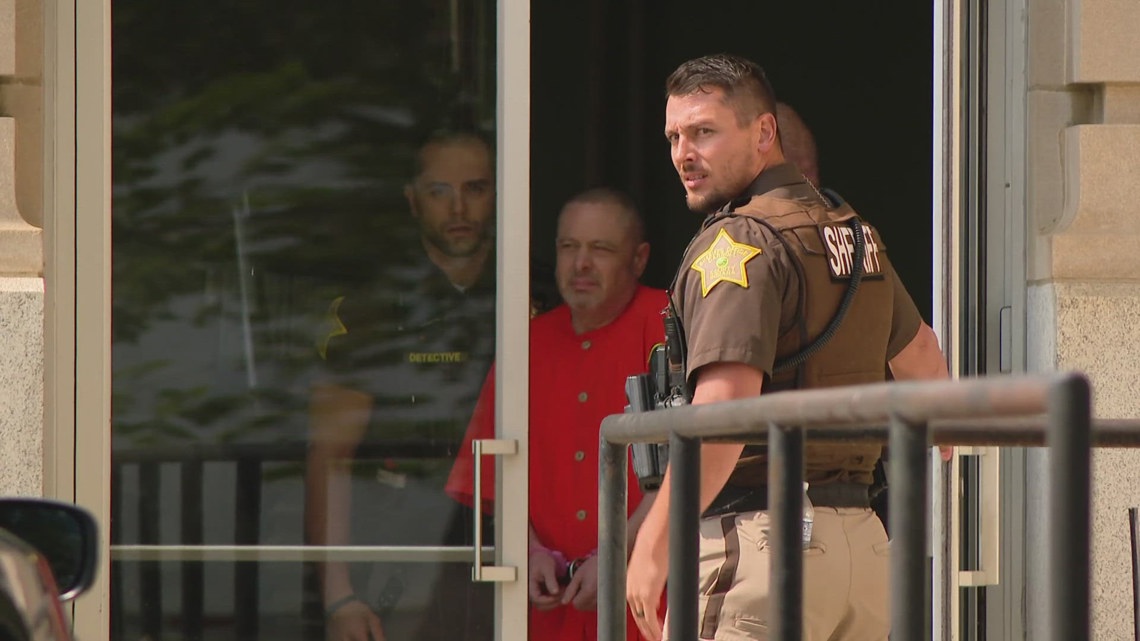
Allen's defense team didn't want the confessions used in court claiming that they were coerced while their client was suffering from mental illness.
Jackson-Lindsay said the judge’s ruling was a significant win for McLeland.
“That's an advantage for the state. There's no question about it,” Jackson-Lindsay told 13News. “Any prosecutor would love to have a confession on a case, and so while it puts the defense in a position to defend something more, it gives the state an extreme advantage in showing, ‘We know we have the right guy because even the guy told you he's the right guy.’”
Jackson-Lindsay said she expects the defense to continue a legal strategy of portraying the confessions as coerced and unbelievable — at times even inconsistent with evidence found at the crime scene.

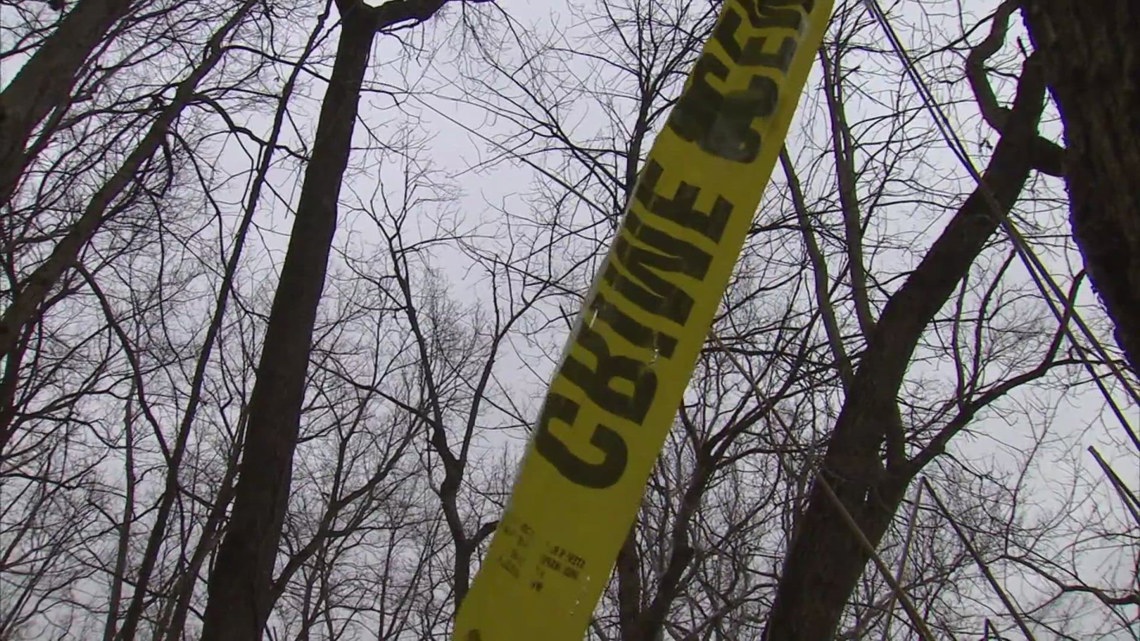
An Indiana State Police detective assigned to the case testified that Allen confessed 61 times to committing the murders.
In a hearing July 31, a former Westville warden said Allen confessed to him as he was walking past his cell, and an investigator at the prison testified that her staff logged two separate confessions from Allen.
Allen has been housed at maximum security state prisons since his arrest in October 2022, first at Westville and then at Wabash Valley Correctional Facility.
Jury selection for the Delphi murders trial is scheduled to begin Oct. 14 in Fort Wayne, with open statements expected to take place Oct. 18 in Delphi.
Key evidence won't be thrown out
On Aug. 13, Gull also denied a request from Allen's attorneys for a Franks Hearing to dismiss some of the evidence prosecutors used to arrest and charge Allen with multiple counts of murder.
That evidence was gathered when investigators served a search warrant at Allen’s Carroll County home in early October 2022.
In their effort to suppress that evidence, Allen's lawyers argued that the sheriff misled and lied to a Carroll County judge in order to obtain the search warrant.
They asked for a hearing to explain why they believe the evidence should not be allowed at trial.
Gull rejected that request for a hearing and ruled that she did not believe the sheriff acted inappropriately when getting the warrant.
One of the most critical pieces of evidence that investigators found during the search of Allen’s home is a firearm the defendant said he has owned for many years. The prosecutor says ballistics testing later performed on that gun link it to an unspent bullet found at the scene where the girls’ bodies were located.

